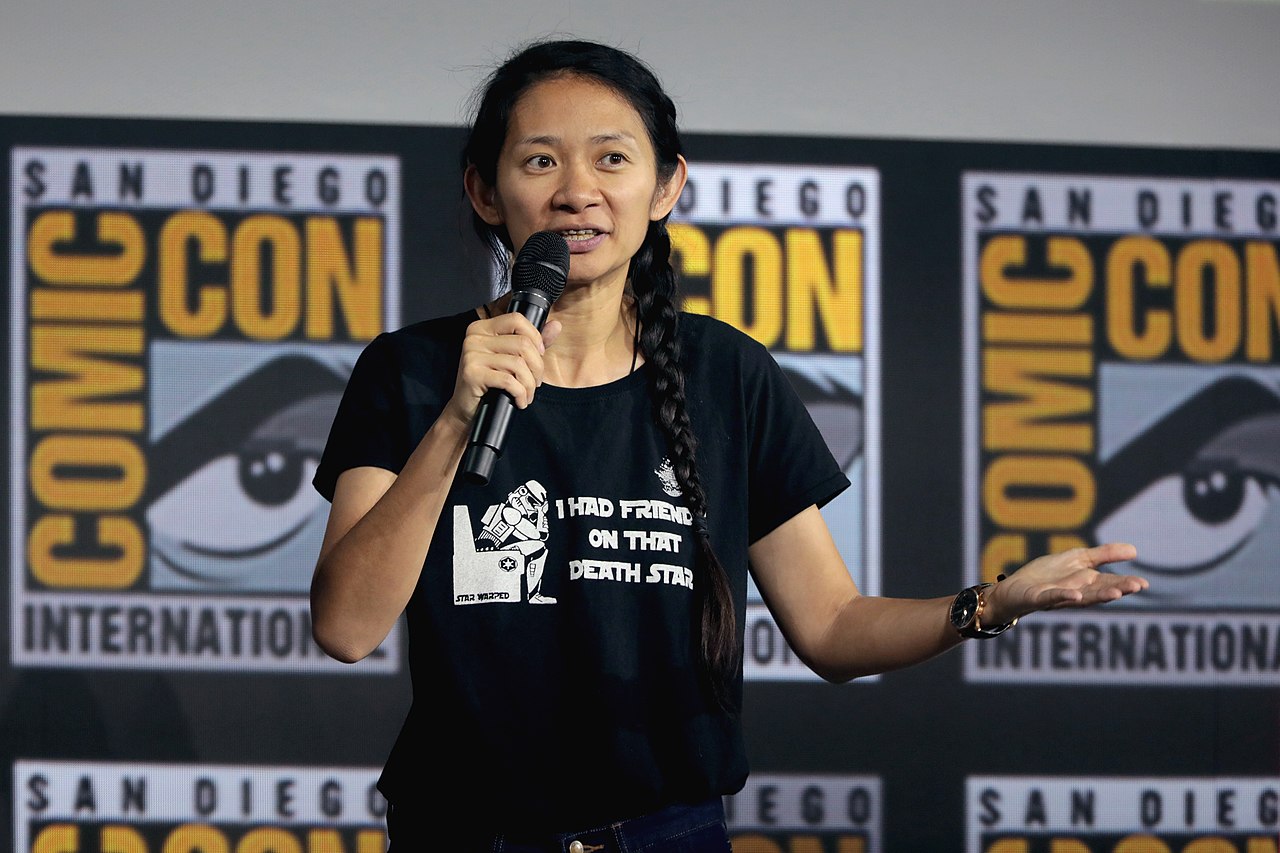The Oscars 2021: two women were nominated for Best Director this year — here’s why that matters
Chloe Zhao & Emerald Fennell were nominated for the Best Director Oscar this year. Here's why that step forward for women in film matters.

The nominations for the 93rd Academy Awards were announced this week and, all things considered, they proved to be pleasantly surprising. While there were a few notable omissions, it seemed as though the Oscar voters chose to step outside of their comfort zone for a little bit. That’s a rarity given that the Academy is notorious for playing it safe. Expected Oscar players flourished, such as Mank and Trial of the Chicago 7, but the real excitement came from the recognition given to pricklier and less awards-friendly titles like Promising Young Woman, Sound of Metal, and Another Round. History was made many times over on nomination morning: Riz Ahmed became the first Muslim performer to be nominated for Best Actor; Minari’s Steven Yeun is the first Korean American actor nominee in the same category; Viola Davis is the first Black woman to receive two nominations for Best Actress. The ground-breaking moment that may have resonated the loudest that morning, however, is the presence of not one but two women in the Best Director category. Over 93 years, only seven female filmmakers have ever received such a nomination, and only one of them has taken home the top award (Kathryn Bigelow for The Hurt Locker.) In 2021, Chloe Zhao of Nomadland and Emerald Fennell of Promising Young Woman have made history. Zhao is also the first woman of color to receive such a nomination.
Suffice to say, this is a big deal. Over the course of nine decades, women directors have been all but ignored, despite multiple examples of talented filmmakers who would have more than deserved nominations. From Ida Lupino and Elaine May to Dee Rees and Lulu Wang, it’s easy to lose count of incredible women behind the camera who have made exceptional contributions to the art of cinema with little to no recognition from their peers. It feels like every year we have to plead for the cream of the crop to get a sliver of attention, whether it’s Lynne Ramsay, Ava DuVernay, Debra Granik, Greta Gerwig, or Marielle Heller. The Academy has never exactly been short of options over the decades, and yet the mere notion of them singling out two whole women for the Best Director category in one year feels nothing short of radical. Would that it were so shocking for men.
But it’s not just the idea of celebrating women that is so exciting. It’s the work of the women themselves being acclaimed in this manner. Chloe Zhao, a Chinese director who specializes in low-budget stories of life on the fringes of America told primarily with non-professional actors, has stolen the show with her third feature, Nomadland. Made on a shoestring budget, Nomadland explores the lives of people who live nomadic lives without a retirement safety net. Based on a true story, the film features Frances McDormand and David Strathairn — part of an ensemble of amateur actors and “real” people (for lack of a better term) — exploring the beautiful and often desolate landscape of the country while taking seasonal work and living on a shoestring. It’s the kind of set-up that could seem either painfully trite or monotonous in execution, but Zhao’s skills are perfectly put to use with this story. She does not rush proceedings, nor does she inject artificial drama into the narrative in a way that Hollywood relies on for stories of people living below the breadline (consider Netflix’s Hillbilly Elegy for the less skillful alternative.) Rather, she pieces together seemingly unassuming moments into something of serious thematic heft and creates a loving but candid portrait of the lives of American outsiders, through choice or otherwise. It's no wonder that Zhao became the first director to win both the Toronto International Film Festival People's Choice Award and the Golden Lion at the Venice Film Festival with one movie.
Emerald Fennell’s feature directorial debut, Promising Young Woman, feels like the kind of film designed to repel Oscar voters. Designated a comedy by the Golden Globes, it’s a pitch-black tale of systemic misogyny that reinvents the rape-revenge fantasy narrative for the post-#MeToo age. Carey Mulligan plays a deeply traumatized woman on a futile quest for vengeance following the rape and suicide of her best friend. Offering sly and frequently devastating commentary on rape culture, the rot of patriarchy and the very storytelling tools used to soften such brutal realities — Promising Young Woman takes zero prisoners. It’s a no-holds-barred takedown of 'Nice Guys' and the other institutional defenses that prevent victims of sexual assault from getting justice when/if they do speak out, all wrapped up in the vibrant glaze of a cheeky rom-com. Typically, a film like this would be considered too edgy for the Academy, a divisive and prickly story with no easy answers and no concern with wrapping up its narrative neatly. Frankly, it’s a viewing experience that may prove a touch too real for some, whether it’s women who know all those warning signs or men who are convinced they’re the exception to the rule, until confronted with evidence to the contrary.
Neither of these films necessarily screams Oscar favorites at first glance and given how much the Academy loves to adhere to its narrow scope of preferences, seeing both Nomadland and Promising Young Woman flourish is an exciting advancement. All too often, the work of women directors has been deemed unlikely to receive nominations because it’s “not what the Oscars like”, whether it’s Lynne Ramsay’s brutal examination of trauma in You Were Never Really Here or Olivia Wilde’s inventive re-imagining of the coming-of-age buddy comedy with Booksmart. Films directed by women have to contend with endlessly moving goalposts: Oh, your film didn’t make enough money at the box office; it wasn’t present enough on the festival circuit; the subject matter is too niche; maybe you just weren’t a priority for campaigning by the studio. We’ve heard these weak excuses time and time again, and they’ve seldom held water but especially now when the options are so varied. So, when two brilliant films directed by women that eschew the widely accepted narratives break through that ceiling, it has to be celebrated.
Still, with this triumph is a hint of sadness. Isn’t it kind of pathetic that the notion of noticing more than one woman at a time is considered so radical that it took the Academy 93 years to do it? How have we gotten through almost a century of Hollywood without recognizing a single woman director of color aside from Zhao? Will 2021 open new doors for women filmmakers or will this be the exception that the Academy gets to point to when the next decade of shortlists is all white guys with beards and baseball caps? This does little to rectify the errors of the past, with the notion of a woman directing a film still seen as a relatively modern invention. We have a long way to go, but a sliver of progress, as maddeningly incremental as it can be, is still better than none at all. Zhao is currently the frontrunner to win, but as William Goldman famously said of the Oscars, nobody knows anything. Their presence in the category on the night of the ceremony will still speak volumes as to where film is going, where it’s been and who gets to tell their stories.
- The best Amazon Prime movies
- Amazon is right: You don't own your digital media
- The best shows on Amazon Prime
- New movies on Amazon Prime
The latest updates, reviews and unmissable series to watch and more!
Kayleigh is a pop culture writer and critic based in Dundee, Scotland. Her work can be found on Pajiba, IGN, Uproxx, RogerEbert.com, SlashFilm, and WhatToWatch, among other places. She's also the creator of the newsletter The Gossip Reading Club.


